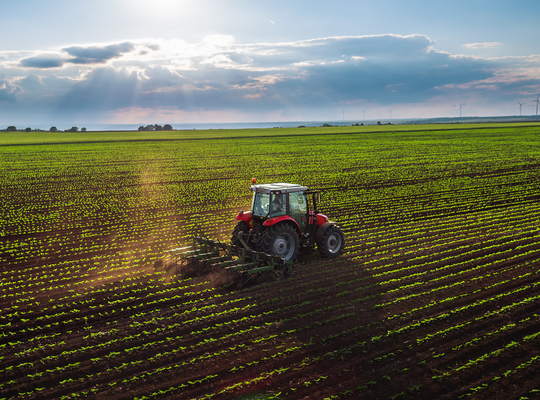You are here
Traditional parties chase old-fashioned agricultural policy through the European Parliament

Next Tuesday, the European Parliament will vote on the Common Agricultural Policy (CAP). The European CAP has to ensure that enough food is grown sustainably. It should also strive for agricultural products at reasonable prices for consumers and a decent income for farmers. However, on a few days of the vote, no documents and texts were available yet, and discussions were extremely opaque. The N-VA delegation in the European Parliament is dismayed at the way things are going.
A mockery of good governance
MEP and chairman of the Committee on Budgets Johan Van Overtveldt is calling for more seriousness and transparency. “The Common Agricultural Policy still accounts for a third of the EU budget, so this is a large file that involves a lot of money. That is not something you should decide lightly. After two years of negotiations, this week the traditional parties will conclude deals in back rooms that will determine the agricultural policy for the next seven years. This is actually a mockery of good governance. I cannot shake off the impression that these traditional parties, averse to all promises about the need for a reformed and forward-looking CAP, want to preserve as much as possible of the status quo by being able to provide as many subsidies as possible with as few conditions as possible, and possibly also have a detrimental impact on biodiversity and the climate.”
Memory loss or schizophrenia?
Last week, a majority in Parliament agreed to very ambitious climate targets. It was argued that all sectors should contribute. Reality has turned out to be different, Johan Van Overtveldt observes. “This week, they are arguing the opposite. The traditional parties are either suffering from amnesia or schizophrenia. When it comes to agricultural policy, the objectives of biodiversity and greening suddenly no longer seem so important. This inconsistency will not be without its price and consequences. When one-third of the budget is, as it were, released to make a substantial contribution to a sustainable transformation, the pressure shifts entirely to other sectors.”
Disastrous for small Flemish farms
N-VA delegation leader Geert Bourgeois is concerned about the impact on Flanders. “We’re not doing farmers in Flanders any favours with this, either. So far, European agricultural policy has mainly led to massive scaling up, with disastrous consequences for small Flemish farms. This new CAP was to be an instrument for ensuring an economic turnaround, future-oriented agriculture with a profitable business model, where agriculture is a natural partner in the fight against climate change. We won’t get there with what is now in front of us. Small businesses that offer added value are not stimulated, and the plans are mortgaging agriculture tailored to the Flemish landscape.”

